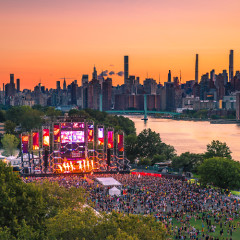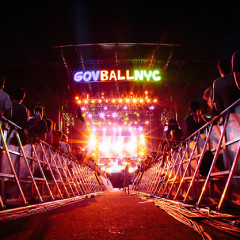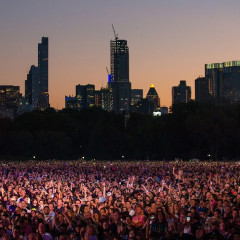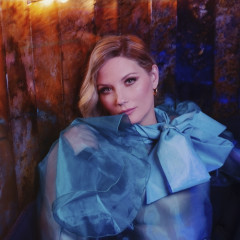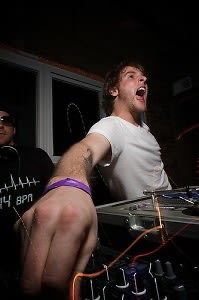 In the tradition of Steve Lawler, Roger Sanchez, Danny Tenaglia, David Morales, and Deep Dish, DC DJ Chris Burns began his DJ career hosting, organizing and promoting epic, underground dance music events at warehouses, church basements, and a slew of other raw spaces. And now, he's killing it.
In the tradition of Steve Lawler, Roger Sanchez, Danny Tenaglia, David Morales, and Deep Dish, DC DJ Chris Burns began his DJ career hosting, organizing and promoting epic, underground dance music events at warehouses, church basements, and a slew of other raw spaces. And now, he's killing it.
His name rings bells in and around the Washington, DC area among house music purists. More recently, the publicity surrounding his production has resulted in him booking more gigs at clubs/lounges. We sat down with Chris and discussed the intricacies of existing in these two seemingly disparate worlds: the underground and he mainstream.
Guest of a Guest: What’s the biggest difference between the warehouse/basement party scene and the mainstream club/lounge scene? Chris Burns: Everything, the people who populate mainstream clubs are really more so looking for a release through the music as opposed to warehouse people who are coming to hear the music; its not necessarily a lifestyle. [There’s] a lot more pressure to deliver consistently to mainstream clubs. The underground crowd wants to hear me take risks and break new records.
To what do you attribute the rise in house music? It was always here but it needed more people to push it forward; folks like Sam Burns, Nouveau Riche, Will Eastman, and myself have propelled it forward in this city but from a mainstream level MTV, for example, now covers acts like Swedish House Mafia and Afrojack right alongside Drake and MGMT providing an immediate mainstream credibility to what they’re doing. Also, XM/Sirius have channels that play dance music 24/7 and people are able to associate names with these songs.
Do you ever feel pressured to cater to the standards of the club/lounge? Of course, everyone always has an opinion. Often the clientele doesn’t think the same way as the club owner; I try to play the middle.
What are the benefits of playing at a mainstream club if your following expects you to spin at warehouse/basement type spots? You know the sound is going to be good; the money is good and I don’t need to promote. If you show up to Lima, Funxion, or Current you know that they will have what you need to sound awesome and they handle all the backend. I love underground parties and I love the rush and the work but sometimes it’s nice to play somewhere where I don’t have to do anything but play.
After making such a huge name for yourself, is it difficult to deal with club owners/manager who barely know your name/style? It’s hard to bite your tongue sometimes but being humble is part of progressing in this industry.
What I the craziest thing that has ever happened to you while DJing? Meeting my heroes; people I look up to approaching me behind the booth and validating my work.
What are some of the perks of being a DJ in Washington, DC? Free merch; I get to meet a lot of interesting people. It’s a small city so I’ve been able to get my feet wet in a lot of different social scenes.
Who are your inspirations? Timmy Regisford was the DJ who inspired me to get into this; my inspiration comes from NYC and I go there often to get records and feel that vibe but I’m also inspired by my peers in DC who are also producing music (many of whom I collaborate with regularly on music and parties).
What’s on the horizon? Production, production, production. And my party tonight at Local 16. Come through!
-
-
-
-
-
-
-
-
-
-
Burns spinning at Policy, where he was a go-to DJ when the venue first opened
-
-
-
-
-
-
-
Throw back: Burns in his gold chain phase circa 2008
-
-
-
-
-
-
-
-
-
-
Burns feeling his own tunes at Local 16, where he throws weekly Wednesday parties during the summer.
[photos by Dakota Fine & Sexy Fitsum]

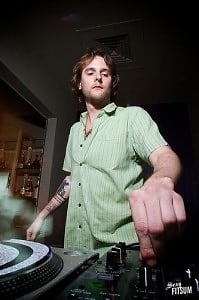
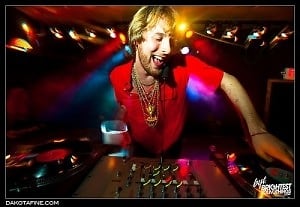
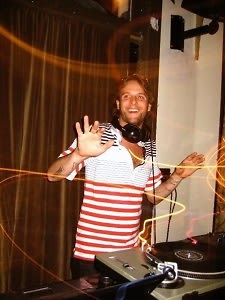

.jpg)
.jpg)



.jpg)
.jpg)
.jpg)

